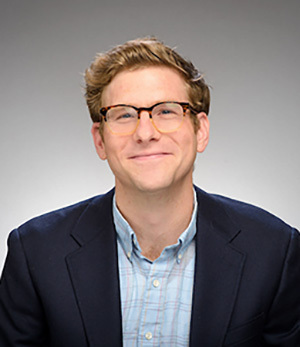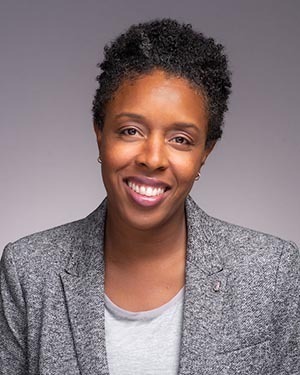Two University of Notre Dame assistant professors of English made progress on their respective books during the National Humanities Center’s Summer Residency Program in North Carolina.
The Institute for Scholarship in the Liberal Arts (ISLA) provided funding for Matthew Kilbane and Chanté Mouton Kinyon to attend the program at the NHC, which is devoted to advancing humanistic study and ensuring insights are shared in academia and with the public.
Josh Tychonievich, ISLA’s research development program director, said the institute was pleased to financially support Kilbane and Kinyon’s promising projects.
“We hope their time at the NHC was productive,” he said. “And we look forward to supporting more research in the College in the year to come.”
Tenure-line faculty members interested in participating in the 2024 NHC Summer Residency Program should email Tychonievich by Friday, Nov. 17; ISLA will manage the internal nomination process.
‘A rare and luxurious privilege’
Kilbane — whose interests include modern and contemporary United States poetry, the history of sound technologies, and digital literary cultures — described having an entire month to write in a peaceful pine forest at Research Triangle Park as “a rare luxury and privilege.”
The large blocks of uninterrupted time were ideal for focused research and writing, allowing him to follow hunches, and engage with humanists in a variety of fields from across the country.

Kilbane completed a chapter and a prospectus for his book, tentatively titled The Ends of Poetry, which is a history of U.S. community-based poetry workshops since the 1960s.
Poetry workshops are under-studied literary institutions largely because most of what attendees write there isn’t published, and therefore isn’t entered into the literary historical record.
“But they're hugely important if one wants to understand the social meaning of poetry — the kind of uses or ‘ends’ to which poetry and its writing have been put,” said Kilbane, who is also a faculty affiliate with the Lucy Family Institute for Data and Society.
Detailing the workshops’ history also helps clarify the vitality of today’s digitally expressive writing.
“In contrast to the eras of mass print and broadcast media, we live in an online age obsessed with expressive writing (How many texts did you write today? How many tweets or Facebook posts?),” he said. “The longer history of community writing furnishes a rich context for reading and reevaluating these socially networked forms of writing.”
His first book, The Lyre Book: Modern Poetic Media, won the 2021 Northeast Modern Language Association Book Award in Scholarship.
‘Seeing what is possible’
Kinyon submitted a proposal to ISLA for NHC residency funding because she’s “in the habit of applying for things all the time and seeing what is possible.”
During her stay, Kinyon wrote an article, drafted a book proposal, and talked with editors about her book, which will explore how 20th-century Black writers interacted with Irish writers and art projects.

“I started to put together the package that I need to have to get an editor and a book contract,” she said.
Kinyon’s mother-in-law, who is from Dublin, helped spark her intrigue in Ireland and Irish literature.
After watching the movie The Magdalene Sisters, about three Irish women who were abused at a Magdalene Sisters asylum in the 1960s, Kinyon peppered her mother-in-law with questions.
“That's when I became interested in Ireland and what was happening in the country,” she said. “And, I started noticing similarities between my own culture and that of my new family.”
Kinyon shares those similarities in courses, including Conflict in Ireland and America During the Civil Rights Era.
The former Moreau Postdoctoral Fellow and Keough-Naughton Institute for Irish Studies NEH Fellow said she’s excited to devote more time to the book during her sabbatical in 2024.


